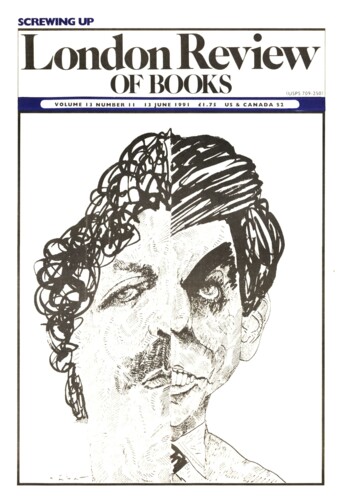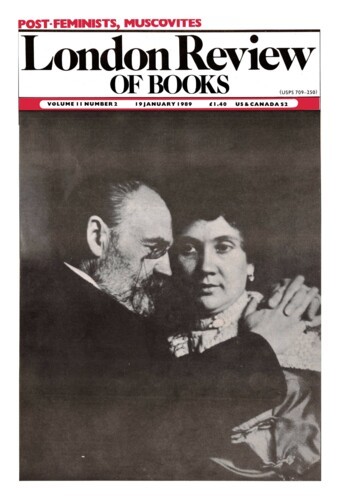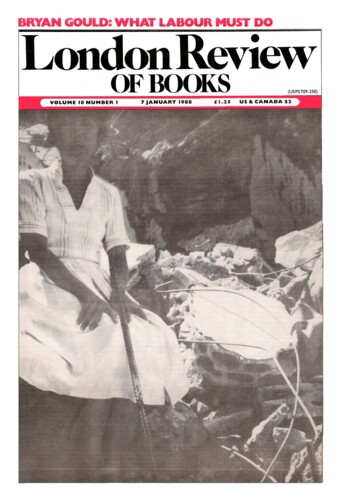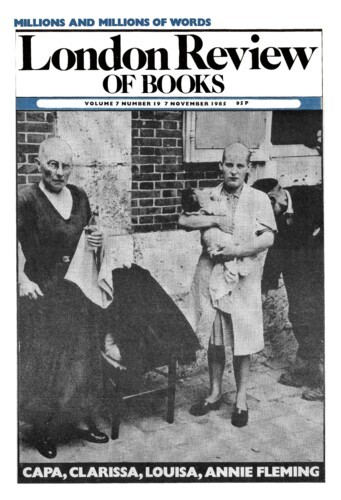A Favourite of the Laws
Ruth Bernard Yeazell, 13 June 1991
In Of the Rights of Persons, the first volume of his celebrated Commentaries on the Laws of England (1765-69), William Black stone concluded his account of how the law makes a husband and wife one person by suggesting that the legal disappearance of the married Englishwoman was effectively a tribute to her sex. ‘These are the chief legal effects of marriage during the coverture’, Blackstone wrote, ‘upon which we may observe, that even the disabilities, which the wife lies under, are for the most part intended for her protection and benefit. So great a favourite is the female sex of the laws of England.’ Perhaps not surprisingly, Blackstone’s sisters now tell a different story. For Susan Staves, whose book takes its impetus both from feminism and from critical legal studies, to analyse the history of married women’s property in England is to uncover the ‘deeper’ structures of patriarchy – the system by which men manage to perpetuate their power by transmitting wealth from one generation to the next. The aim of the law, as Staves interprets it, is to ensure that women have as little independent control as possible of the wealth that passes through them.’




